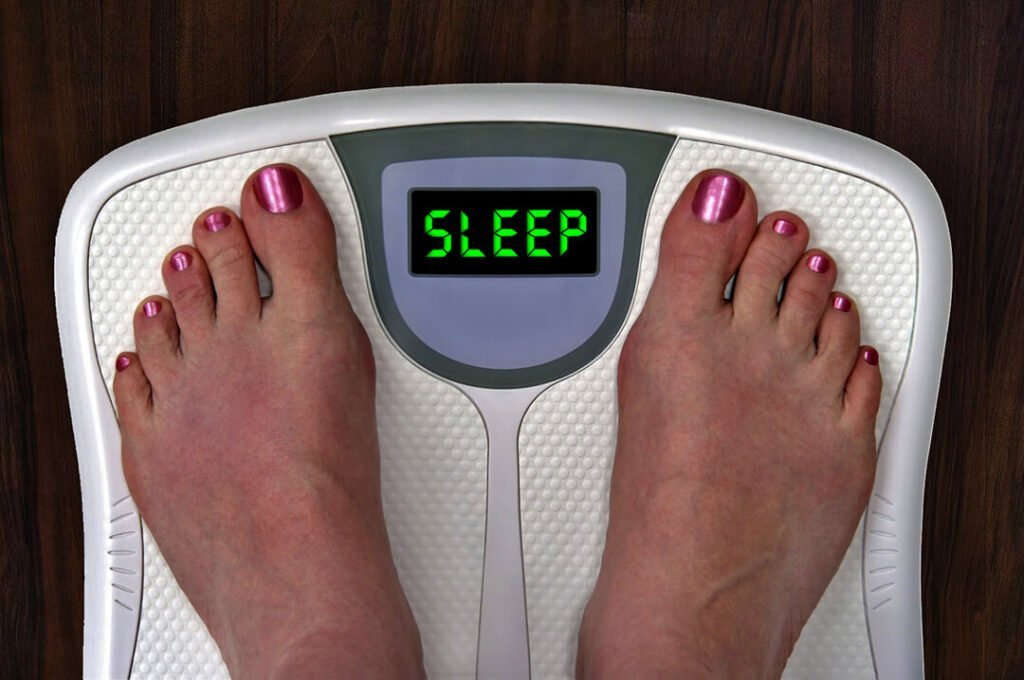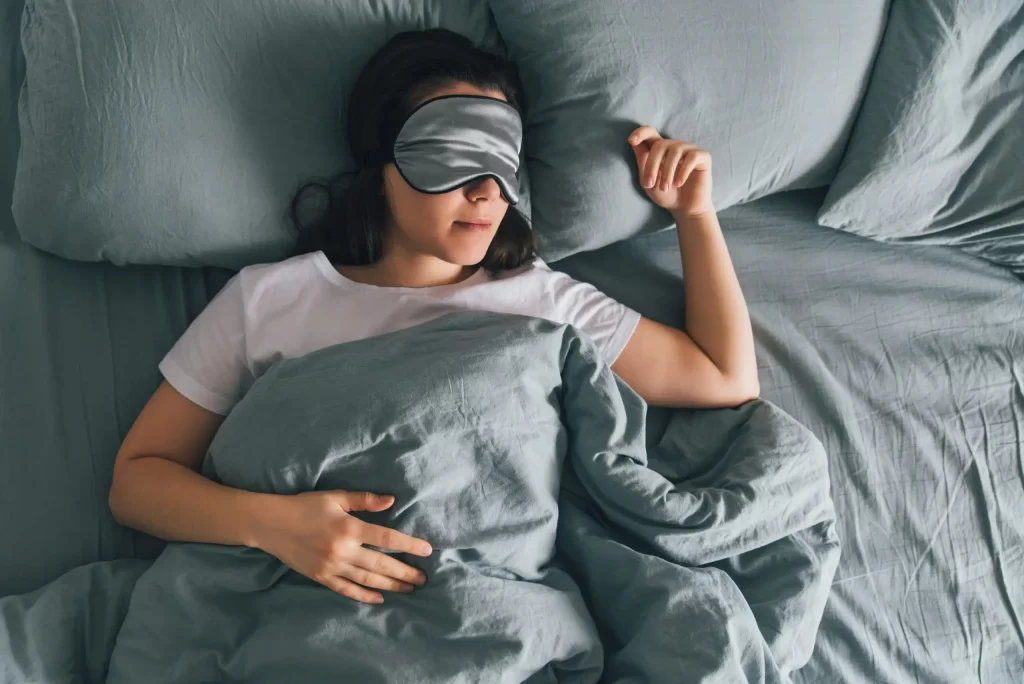Are you struggling to lose weight despite following a healthy diet and exercise routine? Do you often feel hungry, tired, and irritable throughout the day? If you answered yes to these questions, you may be overlooking one of the most important factors for weight loss: sleep.
Sleep is not just a time to rest and recharge your body and mind. It is also a crucial component of your metabolism, hormone regulation, and eating behavior. Getting enough quality sleep can help you burn more calories, control your appetite, and make better food choices. On the other hand, lack of sleep can sabotage your weight loss efforts by increasing your hunger, cravings, and stress levels.
In this blog, we will explore the surprising connection between sleep and weight loss, and how you can optimize your sleep to achieve your weight loss goals.
Table of Contents
How Lack of Sleep Increases Your Appetite

One of the main ways that sleep affects your weight is by influencing your appetite hormones: ghrelin and leptin. Ghrelin is the hormone that signals hunger, while leptin is the hormone that signals fullness. When you are sleep deprived, your body produces more ghrelin and less leptin, making you feel hungrier and less satisfied after eating.
This hormonal imbalance can lead to overeating and weight gain over time. In fact, one study found that men who slept only 4 hours per night had a 22% increase in ghrelin and a 15% decrease in leptin compared to those who slept 10 hours per night. Another study found that people who slept less than 6 hours per night consumed about 300 more calories per day than those who slept 7 to 9 hours per night.
How Lack of Sleep Affects Your Food Choices

Not only does lack of sleep make you eat more, but it also makes you eat worse. Several studies have shown that sleep deprivation alters your brain activity, especially in the regions that are involved in reward, motivation, and decision-making. As a result, you are more likely to crave high-calorie, high-carbohydrate, and high-fat foods when you are sleep deprived.
For example, one study found that sleep-deprived participants chose snacks that were 50% higher in calories and fat than those who were well-rested. Another study found that sleep-deprived participants had a stronger preference for sweet, salty, and starchy foods than those who slept enough.
These unhealthy food choices can add up to a lot of extra calories and fat, which can hinder your weight loss progress and increase your risk of obesity and other chronic diseases.
How Lack of Sleep Impairs Your Metabolism

Another way that sleep affects your weight is by influencing your metabolism, which is the process of converting food into energy. Your metabolism is regulated by several factors, including your genes, age, activity level, and hormones. One of these hormones is cortisol, which is also known as the stress hormone.
Cortisol helps your body cope with stress by increasing your blood sugar, blood pressure, and heart rate. However, when you are chronically stressed or sleep deprived, your cortisol levels can become too high and disrupt your metabolism. High cortisol levels can cause your body to store more fat, especially in the abdominal area, and reduce your muscle mass, which is the main tissue that burns calories.
Sleep deprivation can also affect your insulin sensitivity, which is how well your cells respond to insulin, the hormone that regulates your blood sugar. When you are sleep deprived, your cells become more resistant to insulin, which means that they cannot use glucose effectively. This can lead to high blood sugar, low energy, and increased fat storage.
Moreover, sleep deprivation can reduce your resting metabolic rate (RMR), which is the number of calories you burn at rest. One study found that sleeping only 5.5 hours per night for two weeks reduced the RMR of healthy young men by 8%, compared to sleeping 8.5 hours per night. Another study found that sleeping only 4 hours per night for five nights reduced the RMR of healthy adults by 2.6%, compared to sleeping 10 hours per night.
These reductions in RMR may seem small, but they can have a significant impact on your weight loss over time. For example, if your RMR is 1500 calories per day, a 2.6% reduction would mean that you burn 39 fewer calories per day, which translates to about 4 pounds of weight gain per year.
How to Optimize Your Sleep for Weight Loss

As you can see, sleep is essential for weight loss and overall health. Getting enough quality sleep can help you regulate your appetite, make better food choices, and boost your metabolism. On the contrary, lack of sleep can have the opposite effects, making you eat more, crave worse, and burn less.
So, how can you optimize your sleep for weight loss? Here are some tips to help you improve your sleep quality and quantity:
- Stick to a regular sleep schedule. Try to go to bed and wake up at the same time every day, even on weekends. This will help you establish a consistent circadian rhythm, which is your body’s natural 24-hour cycle of sleep and wakefulness.
- Avoid caffeine, alcohol, and nicotine. These substances can interfere with your sleep quality and quantity by stimulating your nervous system, disrupting your sleep cycles, and causing you to wake up more often during the night. Avoid consuming them at least 4 hours before bedtime.
- Create a comfortable and dark sleeping environment. Make sure your bedroom is quiet, cool, and free of any distractions, such as TV, computer, or phone. Use curtains, blinds, or an eye mask to block out any external light, which can suppress your melatonin production, the hormone that regulates your sleep-wake cycle.
- Avoid heavy meals and spicy foods before bedtime. Eating too much or too spicy food can cause indigestion, heartburn, and acid reflux, which can keep you awake or disrupt your sleep. Aim to have your last meal at least 3 hours before bedtime, and choose light and easy-to-digest foods, such as yogurt, fruit, or cereal.
- Exercise regularly, but not too close to bedtime. Exercise can help you lose weight, reduce stress, and improve your sleep quality by promoting physical and mental relaxation. However, exercising too close to bedtime can have the opposite effect, as it can increase your body temperature, heart rate, and alertness, making it harder to fall asleep. Aim to finish your workout at least 3 hours before bedtime, and avoid vigorous or high-intensity exercises in the evening.
- Relax and unwind before bed. Engage in some relaxing activities, such as reading, listening to music, meditating, or doing some gentle stretches, to help you calm your mind and body and prepare for sleep. Avoid any stressful or stimulating activities, such as working, studying, or checking your email, which can keep you awake or cause you to have trouble falling asleep.
- Limit your naps during the day. While napping can be beneficial for some people, especially if they are sleep deprived, it can also interfere with your nighttime sleep quality and quantity by reducing your sleep drive, which is your natural tendency to fall asleep. If you need to nap, limit it to 20 minutes or less, and avoid napping after 3 pm, which can disrupt your circadian rhythm.

In conclusion, sleep is a vital factor for weight loss and overall health. Getting enough quality sleep can help you regulate your appetite, make better food choices, and boost your metabolism. Lack of sleep can have the opposite effects, making you eat more, crave worse, and burn less.
To optimize your sleep for weight loss, follow these tips:
- Stick to a regular sleep schedule
- Avoid caffeine, alcohol, and nicotine
- Create a comfortable and dark sleeping environment
- Avoid heavy meals and spicy foods before bedtime
- Exercise regularly, but not too close to bedtime
- Relax and unwind before bed
- Limit your naps during the day
By following these tips, you can improve your sleep quality and quantity, and enhance your weight loss efforts. Remember, sleep is not a luxury, but a necessity for your health and well-being. So, make sleep a priority, and enjoy the benefits of a slimmer and healthier you.










